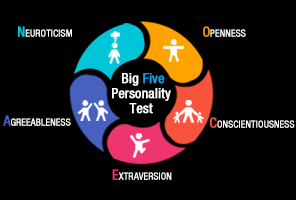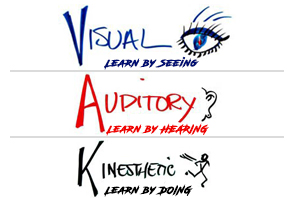
Overview
Test Description
Myers-Briggs Type Indicator
The Myers-Briggs type Indicator (MBTI) is an assessment that measures psychological preferences about how individuals understand the planet and create choices. According to Myers and Briggs, personality typology talks about strengths of an individual and provides a better understanding of how people are different.
Each personality type displays a clear image of the way we behave in certain events. Thus, makes you better able in making decisions that suit your true nature.
What is Personality Typing?
Personality typing is a method of understanding people according to their tendencies to think and act in particular ways. Isabel Briggs Myers and her mother, Katharine Briggs, in the 1960’s created the personality types. Myers-Briggs theories were based on the work of psychologist Carl Jung. They extended Jung’s ideas to create a more complete framework of personality typing.
Myers-Briggs suggested that there are four key dimensions that could be used to categorize people:
I/E: Introversion vs. Extraversion
This dimension describes how a person manages their energy.
Introverts are recognized as reserved and thoughtful individuals. They prefer to spend quiet time alone or with a small group.
Extraverts are recognized as outspoken and expressive individuals. They prefer to spend time with people and in busy or active surroundings.
S/N: Sensing vs. Intuition
This dimension describes how an individual processes information.
Sensors are recognized as practical individuals who tends to be hands-on-learners. They are interested in information they can directly see, hear, and feel.
Intuitives are recognized as creative individuals who are more concerned with future than present. They are more interested in theories and patterns.
T/F: Thinking vs. Feeling
This dimension describes how people make decisions.
Thinkers are recognized as individuals who make decisions with their heads. They are more interested in finding logical and reasonable choice.
Feelers are recognized as individuals who make decisions with their hearts. They are more interested in how a decision will affect people, and whether it fits in with their values.
J/P: Judging vs. Perceiving
This dimension describes how people approach structure in their lives.
Judgers are recognized as individuals who appreciate structure and order. They prefer planned things and dislike last-minute changes.
Perceivers are recognized as individuals who appreciate flexibility and spontaneity. They prefer to leave things open so they can change their minds.
Myers and Briggs proposed that any individual should be able to identify a preferred style on each of the four dimensions. The sum calculated according to a person preferences turns out to be their personality type.
What is the meaning of four letters in a personality type?
Each of the four letters in a personality type code provides your style of thinking or behaving in certain events.
INFP: The Healer
Healers are imaginative idealists and guided by their own core values and beliefs. For a Healer, possibilities are paramount. A Healer always look for a better future, and pursue truth and meaning with their own flair.
INTJ: The Mastermind
Masterminds are analytical problem-solver who are always eager to improve systems. They processes their mind with innovative ideas. Masterminds are equipped with a talent of seeing possibilities for improvement, whether at work, at home, or within them.
INFJ: The Counselor
Counselors are creative nurturers with a sense of personal integrity. Counselors are equipped with a talent of creativity and dedication with original solutions to their personal challenges.
INTP: The Architect
Architects are philosophical innovators who are fascinated by logical analysis, systems, and designs. Architects prefers to occupy themselves in theories and look for the universal law behind everything they see.
ENFP: The Champion
Champions are people-centered creators with a focus on possibilities. They have a contagious enthusiasm for new ideas, people and activities. Champions are a reflection of an energetic, warm, and passionate individual who believe in helping others to explore their creative potential.
ENTJ: The Commander
Commanders are strategic leaders with a motivation to organize change. They look for long-range plans to accomplish their vision and conceptualize new solutions easily. Commanders hold an ability to excel at logical reasoning and articulation.
ENTP: The Visionary
Visionaries are inspired innovators with a motivation to find new solutions to intellectually challenging problems. Visionaries seek to comprehend people or systems with their curiosity and cleverness.
ENFJ: The Teacher
Teachers are idealist organizers who are driven to implement their vision of what is best for humanity. Teachers have the ability to see potential in other people and persuade others to their ideas. Therefore, often seen as a reflection of catalysts for human growth.
ISFJ: The Protector
Protectors are industrious caretakers who are loyal to traditions and organizations. They are practical, compassionate and caring. Persuaders believe in protecting people from the perils of life.
ISFP: The Composer
Composers are gentle caretakers who live in the present moment. They enjoy their surroundings with cheerful and low-key enthusiasm. Composers prefer to go with the flow to enjoy what life has to offer.
ISTJ: The Inspector
Inspectors are responsible organizers who are driven to create and enforce order within systems and institutions. They are neat and orderly. Inspectors tend to have a procedure for everything they do.
ISTP: The Craftsperson
Craftsperson are observant artisans with an understanding of mechanic. They have an interest in troubleshooting. Craftsperson prefer to approach environments with a flexible logic and looks for practical solutions to the problems at hand.
ESFJ: The Provider
Providers are conscientious helpers who are sensitive to the needs of others. They are energetically dedicated to their responsibilities. Providers pay attentions to both the feelings of others and the perception others have of them.
ESFP: The Performer
Performers are vivacious entertainers who engage those around them. They are spontaneous, energetic, and fun-loving. Performers take pleasure in the things around them.
ESTJ: The Supervisor
Supervisors are hardworking traditionalists who are always eager to take charge in organizing projects and people. They are orderly, rule-abiding, and conscientious. Supervisors prefer to deal with projects in a systematic and methodical way.
ESTP: The Dynamo
Dynamos are energetic thrill seekers who are at their best when putting out fires. They carry a sense of dynamic energy to their interactions with others and the world around them.
Myers Briggs as tool to choose the right Career
The Myers Briggs Type Indicator is a career assessment instrument to learn more about your personality type and works as a component of a complete career self-assessment. When used along with tools that assess interests and aptitudes, the Myers Briggs Type Indicator can help people to choose the right career.
The Myers Briggs Type Indicator provides general assumptions concerning how your personality kind is best suited to succeed in terms of career, communication, etc. Thus, knowing a personality type can help you make better decisions about your career or occupation and figure out whether a particular work environment will be a good fit for you.
Instruction
This test is to indicate the preferred behaviour of an individual when answering the questions.
You may find that you act one way more often, but given the choice, you may actually prefer to act more in line with the other answer.
The typical behaviour may reflect what you might have learnt to be the “correct” behaviour, but only if you answer honestly, you may find that you are not acting in a manner that would be more natural or comfortable for yourself. Another way to approach this is to answer as if no one else is going to see your actions and give you their approval or judgment about that behaviour. There are no expectations or “should” included in the answers. There is no “normally” I do this, because the possibility is that you may “normally” be acting outside of their preferred behaviour because of an outside expectation.
Test Requirements
You require a computer or a mobile phone to give the test.
Test Outcomes
MBTI results can help discover important strengths and weaknesses.
The MBTI can be used to Identify important personal or professional goal. The Myers-Briggs Type Indicator (MBTI) personality test can help in making a career choice and also grow the career. You can document action steps to achieve your goals using your strengths. And then how your weaknesses or areas of development can limit you efforts to achieve your goal.
Feedback
- Stars 5
- Stars 4
- Stars 3
- Stars 2
- Stars 1
5.0
Rating
Reviews
Related Test



